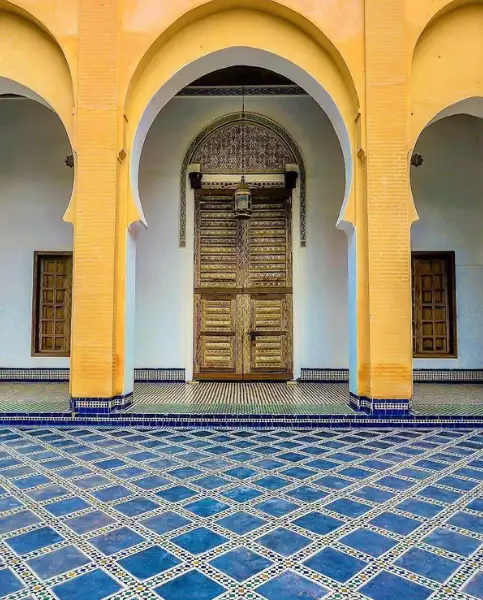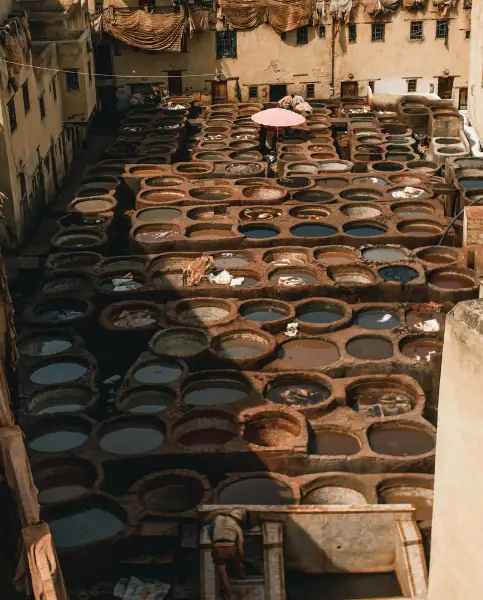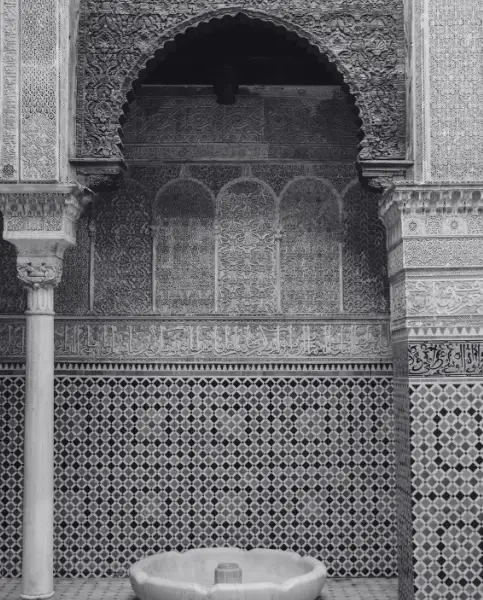


Fez city in Morocco
Despite modern means of communication, the millennial city of Fez as much as Marrakech are so confused and so linked to the name of Morocco that nowadays, in some countries like Turkey, Morocco is known as Fez or Fas. This is to say the importance of this city, endowed with several prestigious titles: first capital of the country, imperial city, cultural and spiritual capital.
Fez is complete immersion in Moroccan culture. It can pride itself on being an inestimable treasure of Morocco which covers history, culture, spirituality, music, art, crafts, gastronomy, refinement, and all the unique Fassi know-how. Immerse yourself in the maze of its medina, inhale the smells spread in the alleys of the bottomless labyrinth of the medina, visit its monuments, the prestigious mosques of the Andalusians or of qarawiyin, the oldest university in the world still in activity, taste the notes of its Andalusian music which will take you back to the glorious Muslim eras, savor its culinary art with its rich recipe combining all the Berber, Jewish, Andalusian, and Afriqiya ingredients, and admire its Arab, Berber, Andalusian, Moorish architectural treasures, its sculptures , its zelliges, its abundant artisanal production…
As much as Fes was at several times an important commercial trading post linking the East to the West, the South to the North, it was and to this day, a crossroads of social sciences, theology, etc... where great scholars such as Ibn Khaldoun and Ibn Sina (Avicennes) gathered and others from all over the world who had come to soak up its influence, especially at the University of El Qarawiyin.
Finally, Fes has shown the world the way of tolerance, coexistence and meetings on the humanitarian chapter, because since its foundation, Berbers, Arabs, Jews, Andalusians, Karawiyin, have settled there and cohabited peacefully. Moreover, it is organized annually the festival of Fes of sacred music of the world.
To remember: Fes, a name whose etymology remains uncertain: we propose different metatheses of Sef in Fes, of Asif in Berber and even of picket (Fez in Arabic)

In Fez are buried priceless treasures, and behind the enclosure that unites Fez El Bali and El Alya, we discover them as soon as we enter through one of its historical doors pierced in its fortications. And there are many historical sites, medersas, shrines, squares, tanneries, weaving workshops, brassware, leather goods, manufacture of zelliges, etc... In Fez, everything blends harmoniously: architecture, spirituality, art, music, crafts,... In the maze of its medina, each alley, each wall, each shop, each tile of its prestigious zellige plunges us into the great history of this unique city.









In Fez, you can breathe authenticity, universalism and deep Morocco. With a great history, a great culture, titles of first capital of Morocco, cultural and spiritual capital of the country, and imperial city. So who has not known Fez, will never know Morocco. Then!
The capital of the Idrissides is a reflection of the history of a 12-century-old Morocco. Shortly after being appointed a political and spiritual guide by the Awarba tribe in Volubilis, Idriss I, founder of the Idrisside dynasty, began the construction of Fez on the right bank of the river which bears the same name. Shortly after, Idriss I died of poisoning between 791 and 793, and it was his son Idriss II born posthumously who developed the city, from 807. Fez has experienced glories and declines according to the dynasties that have governed the country since its construction around 789, twelve centuries ago. Throughout its history, according to the dynasties that ruled the country, it was pampered and glorified by certain dynasties who gave it the title of capital by making it experience great growth, just as it was reprobated by others who deposed it of its titles and left it abandoned. Nevertheless, like its fortifications, Fez has resisted the vicissitudes of history; had it been bent! , it never broke. In this city everything combines history, religion, science,... art, and we can only remain admiring and grateful that it has preserved these riches, as a testimony to the History of Morocco. Today, if Rabat has become the administrative capital, Fes retains the titles of spiritual, cultural capital and imperial city.
